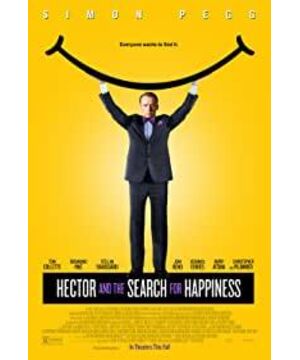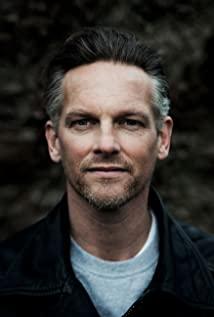He tried drinking and drinking, beautiful women’s scented shoulders, the life of a monk, the happy dance of Africans, and finally the conversation with his ex-girlfriend. Finally, he found the pleasure of "enlightenment" in the psychology laboratory where he studied happiness. The content of "enlightenment" is , What should be cherished most is the moment. Just like "Hong Kong 囧" and "Charlotte Annoyance" said, cherish what is in front of you. Cherishing the present is the secret to happiness. (Such a cliché, why recommend it...)
Is this really the case? Or is the journey of the previous protagonist also part of happiness, or is happiness transcending both "cherishing the present" and "searching process"-but a transcendent existence? I think this question is profound enough.
Is happiness a transcendent existence? It goes beyond "cherish the present" and also goes beyond the "journey to find it."
The Buddha said that there is no real happiness in this world. "Everything is bitter." Inspired by the Buddha, Schopenhauer questioned the "search for happiness" itself, thinking that "searching for happiness" as the goal of life often makes life more painful. I also have this question-"Do you really want to find happiness?" Looking at it from
another angle, what Hector is looking for is what he has in front of his eyes and his journey, and more importantly, beyond the present and the journey, one enlightenment (Epiphany). Therefore, looking for a journey of happiness is actually looking for an enlightenment. And the feeling of enlightenment is that we feel that we have taken another crucial step away from our heart.
The beginning of the journey is an indescribable "suffering". Schopenhauer said that the driving force of life comes from the "will of life." This "will of life" pushed him out of his life in the morning and evening. During the journey, the ritual is full of symbols. The climax of the journey is enlightenment. Enlightenment itself is also full of sacredness. When we search for ourselves, our mind map comes from mythology, from ancient precepts, and from religion. This journey is not a general journey, but a practice of symbols and rituals from myths, ancient precepts and religions. The journey itself is a sacred one.
Sex:
Even in many religions, sex is the enemy of morality, we have to gain this true knowledge through experience. In Nobel Prize winner Hermann Hesse's novel "Siddhartha", exploring the joy of fish and water with the prostitute goddess has become a key experience before enlightenment. We need to experience humanity and moral struggles, and finally break the false morality and obtain the happiness of impunity.
Qingxiu:
The lama temple in the mountains of Tibet represents the light of the wisdom of the Buddha, but not everyone has the isolation of the Buddha. The enlightenment that his "will of life" urged him to pursue was not realized in this lama temple.
Death:
Death was an important ritual in ancient times. Perhaps the Indians still retain this ritual-this ritual sends young people to nature and allows them to experience the fear of death. When they returned, they were able to understand the relationship between man and man, and nature, from boy to man.
Temple:
Finally, Hector returned to the academy and measured himself in a place where the happiness of a living Buddha was measured by MRI. He completed an enlightenment in a place full of grandeur.
The magical thing is that Hector's starting point is not like the situation when Xu Zheng set off in "Hong Kong囧"-a secular dilemma full of life. Hector's starting point is the temple. His psychological clinic and apartment are full of temple sanctity. As a psychologist, he should have the ability to be happy. However, as a psychiatrist, he knew it and failed to bring him enlightenment-but he could have a "will for life" to push him on a journey.
It is like the "Taoist going down the mountain" experienced by Wang Baoqiang. Wang Baoqiang didn't want to leave by himself. But Li Xuejian knew it well, knowing that his talent might bring him enlightenment. This ingenious opportunity led the Taoist priest to descend the mountain. Ingenious opportunities and the "will of life" lead people to enlightenment by different paths.
What was the pink that exploded in the picture when the teacher's mother Lin Chiling was drowning? It is to explain to the audience again: this scene is fantasy, this scene has a meaning beyond itself, it will lead us into a meaning beyond reality-it is the ceremony of Taoist enlightenment, just like fireworks in the festival ceremony Same. This pink explosion of Xiangxiaoyu's death looks so consistent with the emotional surge measured by MRI in "Hector and the Search for Happiness".
It is a similar fate to think of in "Brothers Karamazov", the monastic elder persuading the most intelligent Alyosha to leave the monastery. Alyosha’s enlightenment is not in the monastery. The "will of life" will not leave him in the monastery. He is the connection point between religion and the secular. He needs to re-observe the world through the eyes of religion and reconnect religion and secularity. Enlightenment, find yourself.
"Taoist Going Down the Mountain" was released in 2015. Although many people didn't like it, in this very vague message, the audience couldn't resist an impulse buried in their hearts—to start a journey of searching. From the perspective of society as a whole, people are washed away by new and incomprehensible things every day, they need to regain the ability to control their hearts, and a religious revival is needed.
View more about Hector and the Search for Happiness reviews











